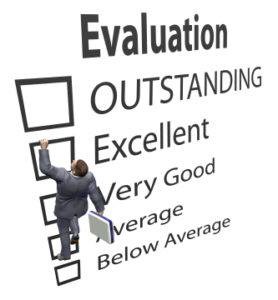
What’s the purpose of the performance review? The answer largely depends upon your point-of-view. If you’re the manager, it’s what you are told to do by HR. If you’re the employee it’s what you have to endure to get a raise. You will not find a lot of people in large or small companies that like the process. More importantly, there is often not a clear “benefit” to either party from the process.
The origin of performance reviews started in the military when it was necessary to rate and rank those moving up. Companies adopted the process sometime after WWII and ever since we’ve had to “endure” it with little explanation or proof that it actually does any good. What is clear is that it takes an enormous amount of time and the results are usually negligible as far as employee performance enhancement and worst case, productivity goes down.
Maybe it’s time to step back and really reflect on why we are doing it. Each company’s answer may be different. Usually, however, it should be about results. How is the team performing and what can individuals do to help the company or department reach its goals? What can the company do to help the employee reach his/her goals?
If those are the intentions behind doing the process, then what should the process be? Certainly something more than an annual chat. If that’s the only time you give feedback, it’s hard to see how any of it helps improve bad behavior or rewards good behavior. One idea is to separate performance reviews from pay. Decide on your remuneration policies and assuming people are are meeting their goals, they get a raise.
For performance, set goals and objectives at the first of the year. Meet with employees regularly (ideally, monthly) and talk about what’s working, what resources they need and ask how they think they are doing, then mentor and coach them by providing guidance. Remember, this is not all about the company. The employees are people and people have goals as well. Some might be career goals, education goals or monetary goals. As a manager, know what your people want and help them achieve it. If you help them, they help you.
Along the way, you will have to give feedback that is not positive. Studies have shown that this rarely goes well. When doing this, I find that asking the employee how they think they are doing or what they could do better, they will usually nail it. That’s the place to start the conversation. Ask what they think they can do about it and again, they will almost always know. You can provide guidance and encouragement as well to help them be successful. Remember people rarely improve weaknesses, try to enhance their strengths instead. As a manager, it’s your responsibility to make sure people have a chance to be successful. If not, it’s as much on you as it is on the person.
At this time of year when reviews are on your mind, maybe, just maybe, it’s a good time to step back and re-evaluate the purpose behind doing them. You might be able to improve the process for your company, yourself and your employees.
